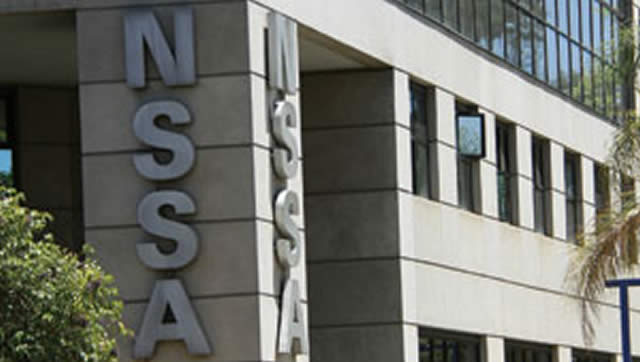Zanu-PF Congress: Learning mindset crucial

 Tapiwa Nyandoro Correspondent
Tapiwa Nyandoro Correspondent
AS the first week of December draws close, and with it the Zanu-PF elective congress, the party’s senior cadres, most of who also double up as Cabinet Ministers or members of Parliament, ought to be seized with getting the moribund economy back to its feet.
But that may be far from their minds, as factionalism and self-interest has taken centre stage.
The theme of the Congress, “Accelerated Implementation of the Zimbabwe Agenda for Sustainable Socio-Economic Transformation”, may just be a public relations exercise meant to hoodwink the gullible party members who attend the congress and the nation at large.
But should the opposite be true, as miracles never cease to happen, and the Zanu-PF leadership puts the interest of the impoverished nation before their own, how are they to proceed?
Patrick Zhuwao, writing in a weekly recently, raises the point that “the nation rightly seeks to know how the implementation of Zim-Asset will be accelerated”.
He even doubts whether the Zanu-PF leadership knows what it is talking about when they say: “In line with Zim-Asset . . .”
I am tempted to agree with him. A good number of them may think that the political battles currently raging in their party are “in line with Zim-Asset”. Could they be right?
Taking Zimbabwe out of its economic quagmire requires an honest learning mindset among the leadership, a rare trait only 10 per cent of Executives are presumed to have.
If the Congress is to be of any use to Zanu-PF and the nation at large, it should seek out such leadership.
“Creating a learning Society”, a book authored by Nobel Laureate Joseph Stiglitz and Bruce Greenwald, has been proposed as presenting a new approach to economic growth, development, and Social progress.
The landmark book, according to Finance & Development — F & D (September 2014) — proposes that “technical change is a process of learning and that firms grow and countries develop as they learn in three ways viz:
Invention, (for example of the internal combustion engine),
Innovation (adapting inventions to production processes, such as, at its most basic, and relevant to Zimbabwe, learning to drive and use a tractor in crop farming),
And “learning how to learn” (so as not to repeat past, or others’ mistakes, among other things, and hence avoid the “school of hard knocks” which is Zimbabwe’s perennial misfortune)
According to the book, what differentiates successful from less successful economies is a process of learning that permits firms, sectors (clusters), and eventually the whole economy to achieve its true potential.
The book notes that the old concept of comparative advantage in a world of high capital mobility may no longer be appropriate.
You have to keep an eagle eye on what others are doing well so you may innovate and so push forward “the production possibility frontiers”.
The authors of Creating a Learning Society believe that governments have a duty in facilitating the dissemination of knowledge, as opposed, I think, to self-serving propaganda, smear campaigns and other toxic lies.
Knowledge, according to the F & D article, is a public good that in the absence of government intervention is under-supplied in a competitive global market economy.
This important role of facilitating the uptake of knowledge and world-class skills by society, aids in stimulating economic growth and improving the welfare of citizens.
It explains the major differences in farm productivity between the American farmer and his Zimbabwean counterpart. It explains too the differences in output and productivity between Chinese leadership and local leaders.
In his article, Patrick Zhuwao touched on most of these notions.
He appreciates the need for leadership and knowledge. He puts human capital development, and hence learning and knowledge, above other natural resources, as a driver to economic growth. He questions whether the current leadership really understands “their agenda” for sustainable socio-economic transformation.
In what he calls “Appreciative Inquiry Paradigm”, he calls for a learning society; a learning mindset.
In this he agrees with Professor Tony Hawkins, who at his Management Express Forum presentation in Harare recently, said that Zimbabwean policy-makers should stop looking back wistfully at the old economy and as a result being pre-occupied with resuscitating old industrial structures.
Instead, the Professor suggested, Zimbabwe’s leadership should adapt to the current reality, “the new normal”. Zhuwao asks that the resources for accelerating the implementation of Zim-Asset be quantified.
In monetary terms, Professor Hawkins has done that for him, noting that as much as 30 percent of GDP (initially US$3bn to US$4bn) must be invested annually to grow the economy at Zim-Asset’s targets of over 6 per annum.
Given Zimbabwe’s low base, that of course is not good enough; a more ambitious target is required. If the economy is to grow at double digit figures, then investment of over 50 percent GDP annually is required for the next two to three decades.
The challenges facing Patrick Zhuwao, who is a Zanu-PF Politburo member, and his colleagues as they go to the Party’s elective congress, are:
how to put in place a leadership with a learning mindset,
how to actively encourage the uptake of knowledge by both the leadership and the workforce and,
how to attract as much investment and innovation as possible to education, agriculture, mining, infrastructure, manufacturing and services.
With his article he has made a good start. An “appreciative inquiry” on government’s performance over the past 20 years could open eyes.










Comments